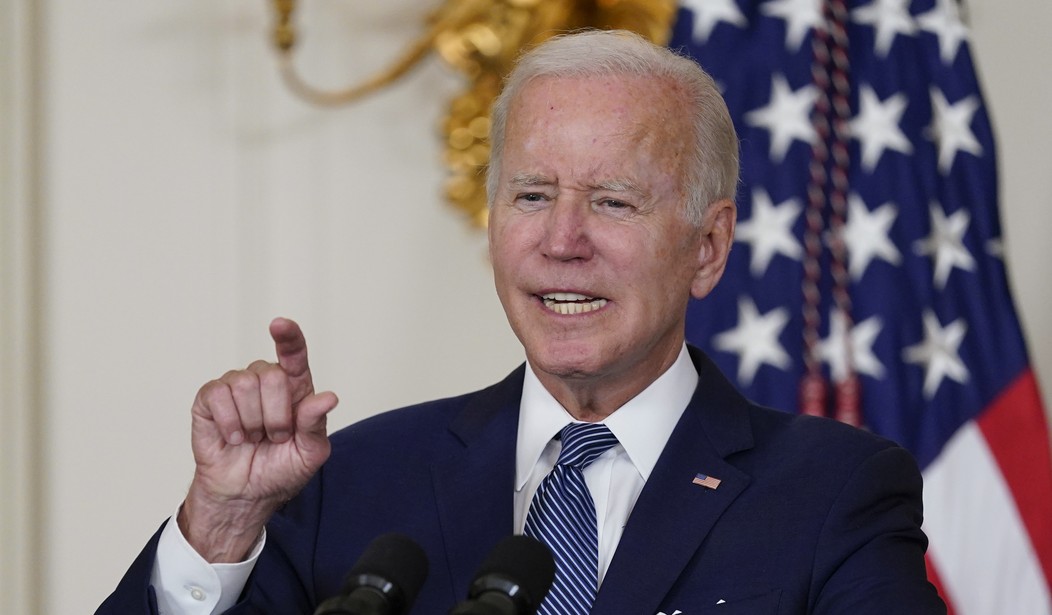The American Civil Liberties Union last week applauded President Joe Biden's plan to cancel student loan debt, which it describes as "a racial justice issue." That puzzling position encapsulates how far the venerable organization has strayed from the mission reflected in its name.
Under Biden's new policy, borrowers earning up to $125,000 a year will be eligible for $10,000 in debt relief, or twice that amount if they qualified for Pell Grants as students. The 43 million or so beneficiaries include many affluent people who could readily afford to pay off their loans, while the cost, which is projected to be at least $300 billion, will be borne by taxpayers, including Americans of relatively modest means.
Some of the people picking up the tab never attended college, while others struggled to do so without borrowing money or have already paid off their loans. But in the ACLU's view, that seemingly unfair redistribution of resources is what racial justice demands.
"This debt burden falls heaviest on Black Americans -- especially Black women," the ACLU says. "Student debt cancellation will help secure financial stability and mobility for people of color -- particularly Black Americans -- who are disproportionately burdened with student debt while providing immediate financial relief and peace of mind for millions of Americans."
Whatever you might think of that argument, it has nothing to do with protecting civil liberties. The 14th Amendment guarantees equal protection under the law, but it does not promise to eradicate racial disparities in educational or economic success.
As the ACLU sees it, however, any such disparities result from "centuries of structural inequities and racism." The federal government therefore has a duty to ensure equal outcomes, which requires wide-ranging interventions, including welfare programs, education spending, job training, affirmative action, public housing, tax credits and state-subsidized health care.
Recommended
To give you a sense of how far afield that cause takes the ACLU from the defense of constitutional rights, the organization argues that "broadband access for all" is a racial justice issue because people without broadband access "are disproportionately Black, Latinx, Indigenous, rural, or low-income." The ACLU describes the Patient Protection and Affordable Care Act, which it urged the Supreme Court to uphold, as "a great civil rights law" because "it is not possible to fully participate in the economic, social, and civic life of our nation without stable health coverage."
If "stable health coverage" is a prerequisite for fully participating in "the economic, social, and civic life of our nation," so is stable housing, stable employment and a stable supply of food, clothing and transportation. Such reasoning expands the ACLU's mission to include pretty much any domestic policy issue.
The ACLU's embrace of a broad progressive agenda alienates potential allies who do not necessarily agree with that agenda but support vigorous advocacy for civil liberties. It also weakens the ACLU's commitment to the goals that once defined the organization, including the defense of First Amendment rights.
According to an internal staff memo that was leaked in 2018, ACLU attorneys who are thinking about defending a potential client's right to express opinions they find repugnant -- the sort of function that the organization has proudly served through most of its history -- should consider how that might conflict with "other values" supported by the ACLU. "Speech that denigrates (marginalized) groups can inflict serious harms," the memo warned, "and often will impede progress toward equality."
A case the Supreme Court will hear during its next term further illustrates how the ACLU has lost its way. The organization argues that a Colorado woman who has religious objections to gay marriage should nevertheless be forced to apply her artistic talents in designing websites for same-sex weddings, notwithstanding the First Amendment's restrictions on compelled speech.
A consistent defense of civil liberties is the ACLU's raison d'etre. But as the organization becomes increasingly indistinguishable from myriad progressive advocacy groups, it is sacrificing the principles that made its work worthy of wide support.

























Join the conversation as a VIP Member